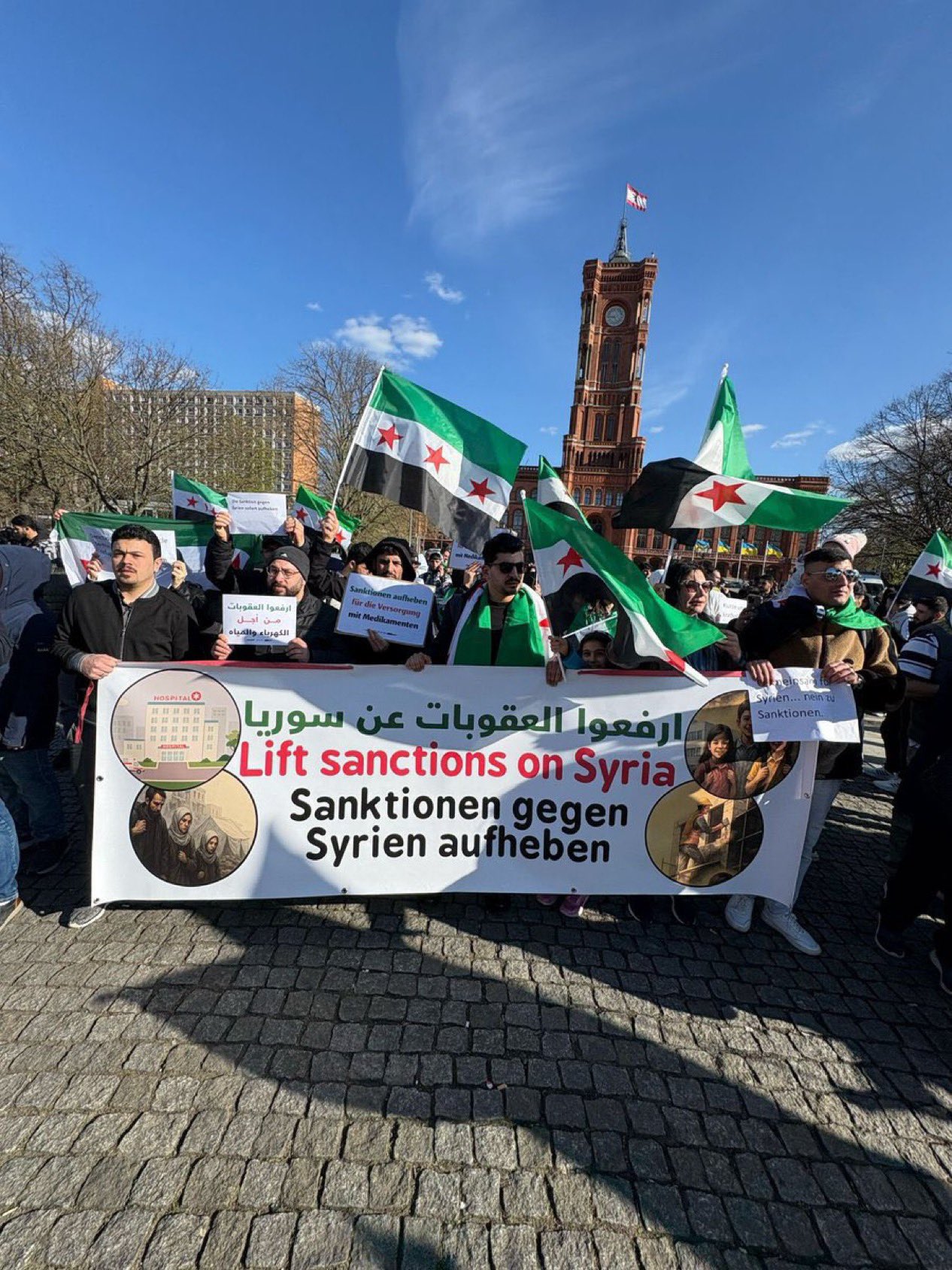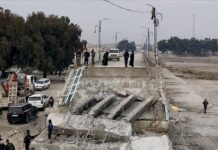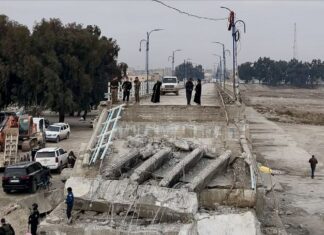
Efforts to ease international sanctions on Syria have intensified as economic conditions continue to deteriorate. In recent days, high-level meetings in Damascus and abroad have underscored the growing urgency to lift restrictions that many officials say are deepening Syria’s humanitarian and economic crises.
Idlib Governor Muhammad Abdurahman recently hosted a delegation from the Syrian American community, led by Dr. Reem al-Bazm, to discuss the toll of the conflict on the region and the need for external engagement. Both sides stressed the importance of Syrian diaspora communities in influencing foreign policies, particularly those related to sanctions, and highlighted the role international cooperation could play in rebuilding the country.
US Engagement Raises Hopes
Last Friday Syrian Foreign Minister Asaad al-Shaibani met with US Congressman Cory Mills to explore possibilities for strengthening bilateral relations. According to a Syrian Foreign Ministry statement, the talks covered shared security concerns and the negative effects of sanctions on sectors ranging from healthcare to energy. Shaibani argued that these measures “directly harm ordinary Syrians,” echoing a sentiment voiced increasingly by regional partners.
Qatar’s Foreign Minister, Muhammad bin Abdulrahman Al Thani, also noted a shift in Washington’s stance. “The United States is open regarding Syria,” he said, advocating for sanctions relief to allow Syria’s government to resume essential services. Al Thani revealed ongoing consultations with US officials over Qatari financing of energy projects in Syria, signaling regional efforts to rekindle economic activity.
Calls for Reform and Recovery
US lawmakers are also weighing in. In a bipartisan letter to Secretary of State Marco Rubio and Treasury Secretary Scott Besant, Senator Jeanne Shaheen called for reducing restrictions on Syria’s vital sectors. Shaheen emphasized the need to “expedite the reduction of sanctions risks” in areas such as agriculture, education, and telecommunications, citing the potential to stabilize the country and advance US interests.
At the UN’s Development Program (UNDP), Regional Chief Abdullah al-Dardari said Syria cannot afford to wait for sanctions to be lifted before beginning economic recovery. Speaking from Damascus, he urged authorities to launch service-oriented projects to quickly improve conditions for ordinary citizens. A recent UNDP report estimated that Syria has lost $800 billion in GDP since the war began, with nine in ten citizens now living in poverty.
International Institutions Signal Return
In a significant development, Syria is re-engaging with global financial bodies. Finance Minister Muhammad Yasser Barnieh announced the appointment of Ron van Roden as the IMF’s Mission Chief in Syria, marking renewed cooperation after over a decade. Meanwhile, World Bank Vice President Ousmane Dione confirmed support for Syria’s recovery, especially in energy and digital infrastructure.
While sanctions remain a major obstacle, international and regional actors are exploring ways to revitalize Syria’s collapsed economy. Whether this momentum leads to tangible relief will depend on the country’s political trajectory and the willingness of foreign powers to adjust long-standing policies.








